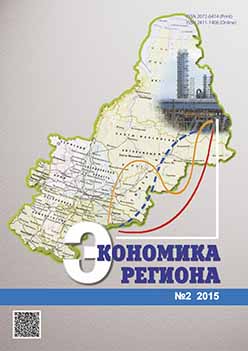Paradoxes of Economic Theories and Politics
Paradoxes of Economic Theories and Politics
Author(s): Ruslan Imranovich KhasbulatovSubject(s): Economy
Published by: Институт экономики Уральского отделения Российской академии наук
Keywords: history of economic thought; economic theory; economic policy; recession; the Great Depression; New Deal by F.D. Roosevelt; the Great Recession;
Summary/Abstract: The article gives an overview of the evolution of economic theories, the conditions which led to the formation of their modern schools and focuses on the analysis of arising classic, neoclassic and Keynesian doctrines encouraged by the growth and development of productive forces (factors of production), the formation of big corporations-monopolists and technological progress. The severe global recessions (1929–1933) and other shocks of the capitalist system brought to life the doctrinal theory, which is alternative to the classical one. The doctrinal theory was a theoretic and methodological basis of the System for half a century, then it was replaced by neoliberal and monetarist theories that proved to be inconsistent during the global crisis and depression in 2008–2013. The article also touches upon the necessity to change the economic policy of Russia — an urgent problem resulting from a policy of the Western countries trying to suffocate the country with sanctions.
Journal: Экономика региона
- Issue Year: 11/2015
- Issue No: 2
- Page Range: 23-40
- Page Count: 18
- Language: English

